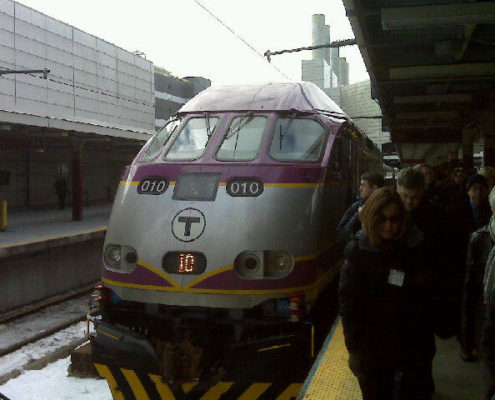
Aim High on MBTA Ridership: A big-picture take on the T’s strategic plan
0 Comments
/
This report focuses on setting a strategic target for substantial increases in MBTA ridership. The author examines ridership trends from 2002 through the most recent available data for 20162, tracking annual growth in ridership from September through August for each year on the following six transit modes: heavy rail (the Blue, Orange and Red Lines), light rail (Green Line), commuter rail, bus, trolley bus and ferry service. The report offers projections of potential revenue the MBTA could generate in a range of scenarios.
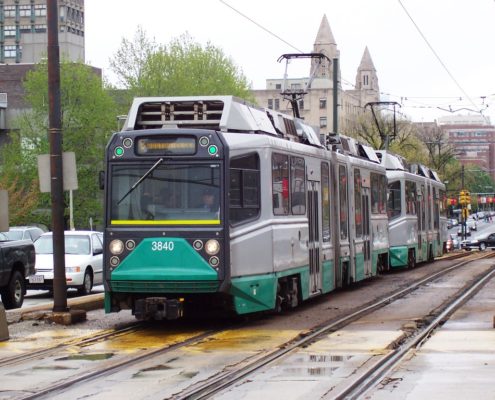
Public Comment for the Stakeholder Input Meeting
Jim Stergios shares Pioneer Institute's perspective on the Strategic Plan being developed by the Fiscal and Management Control Board. Please allow me to make a few observations on “Strategic Planning Update, September 26, 2016,” the 23-page slide deck that has been made publicly available.
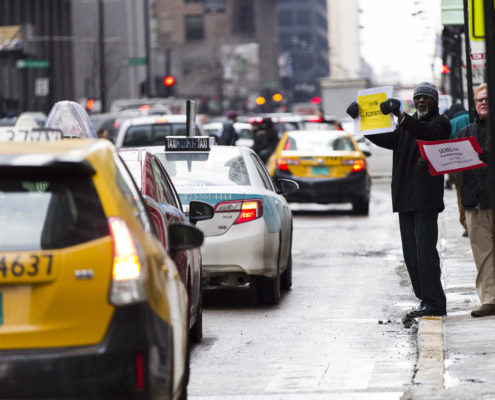
Leveling the playing field: the need for taxi reform in the Commonwealth
In Leveling the playing field: the need for taxi reform in the Commonwealth, authors Matt Blackbourn and Gregory Sullivan describe some of the unfair and outdated regulatory restrictions that cab operators face, and offer recommendations for the ride-for-hire task force, to be established by new legislation.

Driving Innovation: Tolling and Transponders in Massachusetts
Driving Innovation: Tolling and Transponders in Massachusetts explores transponder use in other states and encourages cooperation between public agencies and private industry to simplify and rethink customers’ transportation experience.
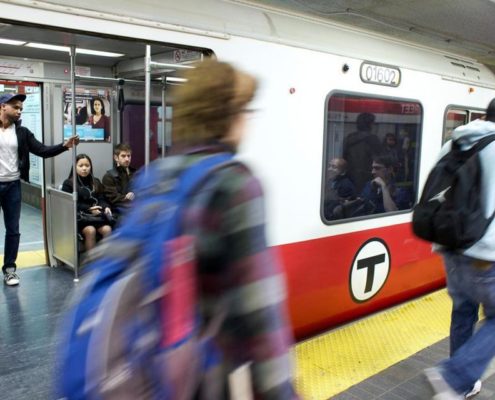
The Reckless Cost of Investment Mismanagement at the MBTA Retirement Fund
This report illustrates that had MBTA Retirement Fund (MBTARF) assets been placed in the Massachusetts state pension fund at the end of 2000, their value would have been an estimated $902 million greater by 2014 and T pensions would have been about fully funded.

Important Considerations for Regulating Ridesharing in Massachusetts
Legislation recently approved by the Massachusetts House to create a new Ride for Hire Division within the state Department of Public Utilities to regulate Transportation Network Companies like Uber, Lyft and Fasten includes a number of fair and sensible protections for TNC customers, but goes too far to protect the outdated system of taxi medallions controlled by government regulators.
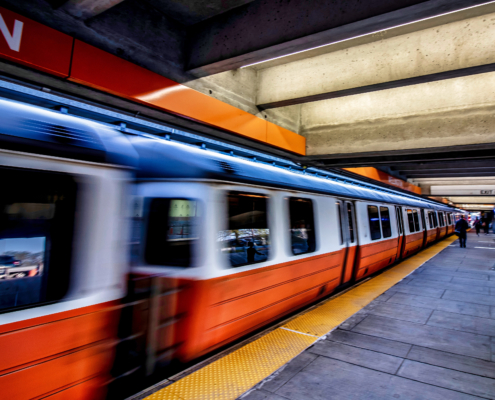
The Reckless Cost of MBTA Financial Derivatives
This study reveals that the MBTA built up a large exposure to financial derivatives and had to pay an estimated $236 million in interest on synthetic swaps for fiscal years 2001 to 2015.
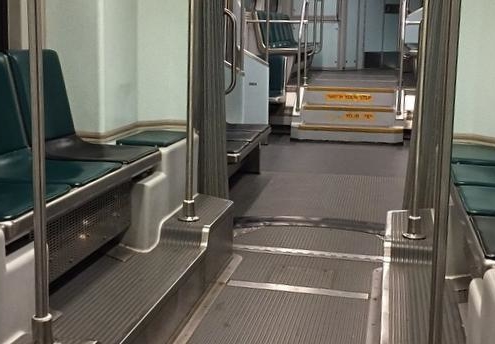
Data Reveals Out of Control Administrative Staffing Budget Increases at MBTA
Data released by the National Transit Database (NTD) reveals startling increases in MBTA expenditures on administrative personnel over the past several years, generating even more doubt surrounding the commitment of the Authority to cost-containment.
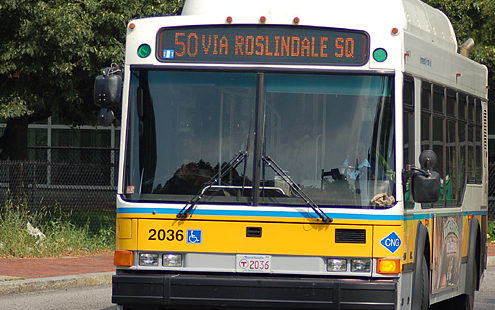
A $49 Million Sweetheart Deal How MBTA Employee Unused Sick Time Perk Enhances Pensions
Earned sick leave for T employees ranges from 12 to 15 days per year depending on an employee’s classification. Unused days accumulate into employees’ sick leave balances. The purpose of this analysis is to determine how the MBTA’s sick leave policies impact retirement payouts and how that compares to state employee benefits.

An Uncertain Future for Ridesharing Services in Massachusetts
Three bills currently pending in the Massachusetts Legislature would create a regulatory structure for TNCs; two attempt to address customer safety concerns without imposing burdensome regulations, but a third bill includes at least one poison pill. A new Pioneer Policy Brief argues that rather than apply rules that have led to higher costs and lower quality in the taxi industry, Massachusetts should strive to balance adequate customer protections with maintaining the ability of transportation network companies (TNCs) like Uber and Lyft to do business in the commonwealth.
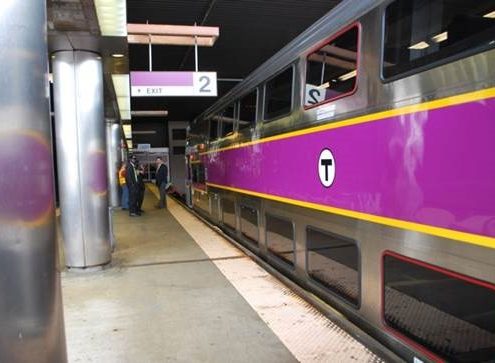
How to Save the MBTA More Than $100 million a year
This policy brief identifies three immediate measures the MBTA…
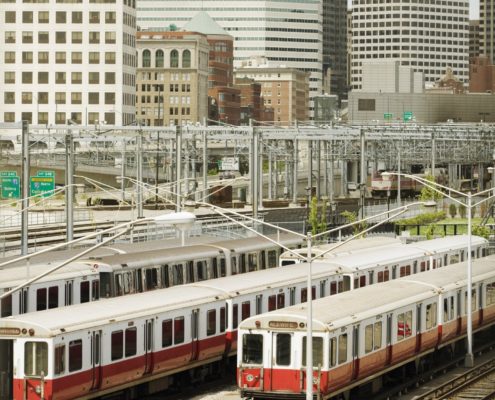
The Pacheco Law has cost the MBTA more than $450 million – here’s the evidence.
The report has three major findings—each of which demonstrates that the Pacheco Law has cost the MBTA more than $450 million since it blocked the MBTA from signing two contracts in 1997 to purchase 38.0 percent of its bus and bus maintenance service from private companies.
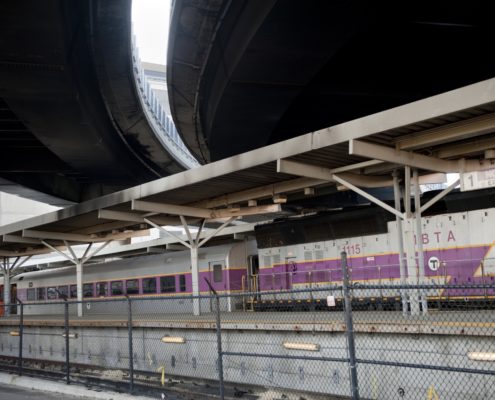
MBTA Reform – The Case of Full, Final and Binding Interest Arbitration
A study of thousands of pages of interest arbitration documents stored in Superior Court argues that full, final and binding interest arbitration involving the MBTA circumvents the power of all three branches of government and leaves a single, unelected individual in the role of decision-maker on contract disagreements with tens of millions of dollars at stake.
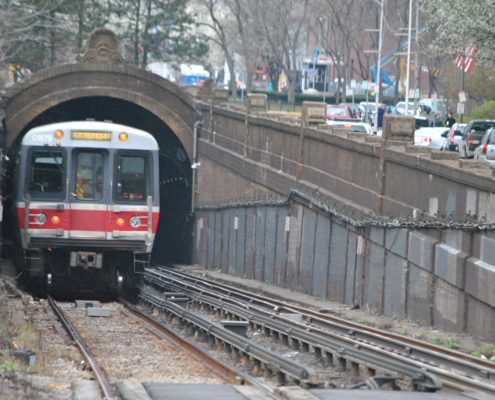
Testimony in Support of House 3347 Transportation Reform
Charles Chieppo provides public testimony before the Joint Committee on Transportation in Support of House 3347.
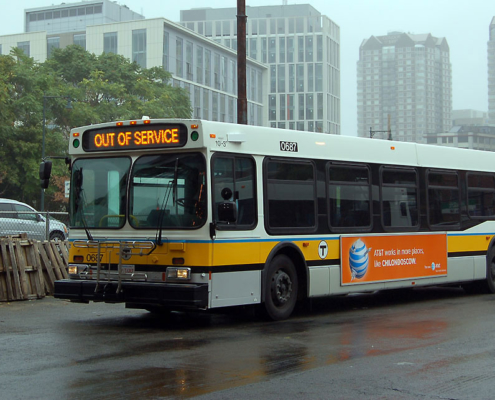
Testimony Before the Joint Committee on Transportation in Support of House 3347
Greg Sullivan provides public testimony before the Joint Committee on Transportation in Support of House 3347.

Guess Who Runs the Best Paratransit System in the MBTA’s District? Hint: It’s Not the T
This report concerns The Ride, the MBTA’s demand-response paratransit service. Using data from the National Transit Database, the primary federal repository of transit related data and statistics in the United States, and public reports of transit agencies and transportation organizations, this report compares the Ride’s cost efficiency and operating practices with those of other Massachusetts paratransit systems, including those of 13 Massachusetts regional transit systems and of the Human Services Transportation Office (HST) of the Executive Office of Health and Human Services (EOHHS).
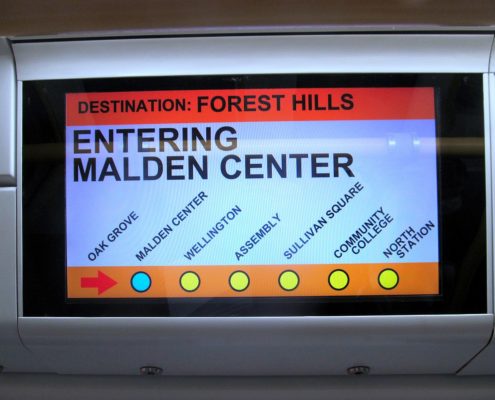
MBTA’s Problem Is Not Lack of Funding
This report presents a comparison of the MBTA’s capital and…
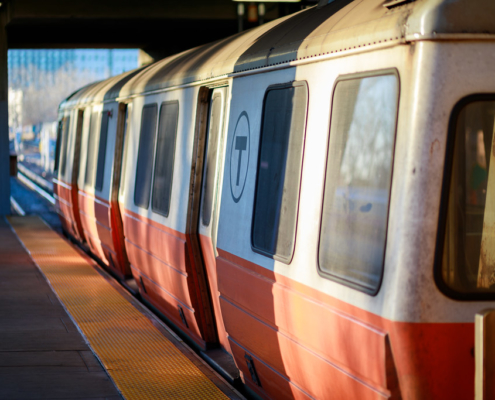
The MBTA Commuter Rail’s Cost Structure is Off the Rails
This report analyzes the MBTA’s commuter rail services compared to the commuter rail system the Integrated National Transit Database Analysis System (INTDAS) rated as most similar, the Southeastern Pennsylvania Transportation Authority (SEPTA). SEPTA operates 13 branches to more than 150 stations in Philadelphia and
its suburbs. This brief contains five important findings.
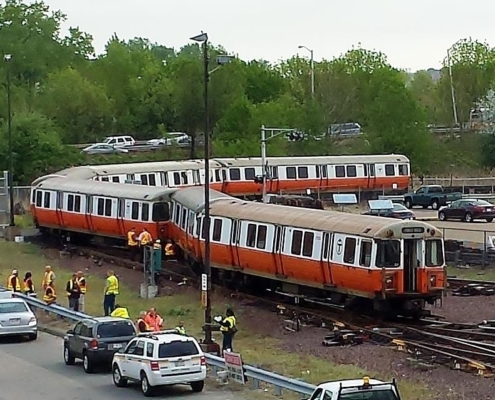
Massachusetts Experience with Hard and Soft Receiverships
Last week Pioneer Institute called for the MBTA to be placed in “soft receivership,” or what is often called a finance control board. The purposes of this policy brief are to consider Massachusetts’ experience with two recent receiverships, and to provide useful background for the new special commission established by Governor Charlie Baker to analyze the causes of the current situation at the MBTA and the reforms and governance changes needed to improve it.
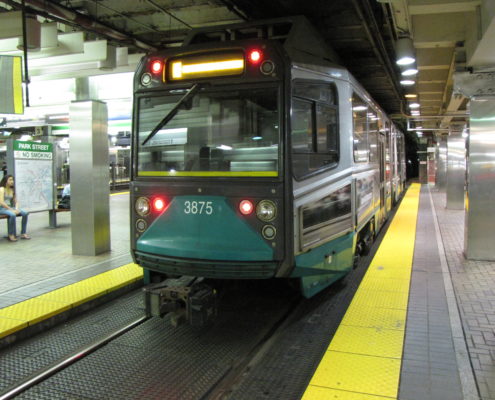
MBTA is the Fastest Expanding Transit System
Pioneer has previously written that rapid expansion was a major cause of the MBTA’s recent meltdown. More recently, we wrote that MBTA is the only American commuter rail system that lost ridership between 2003 and 2013.
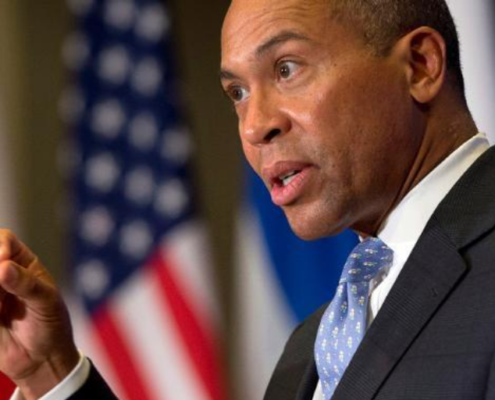
The Good, the Bad and the Ugly Eight Patrick Administration Budgets Later
Has Massachusetts made progress towards providing a better quality of life for its residents while maintaining financial stability over the past decade or so? In July 2014, Governor Deval Patrick signed into law the eighth and final budget of his administration with only a few vetoes and recommendations to the General Court. Five years after the financial crisis, this is an opportune moment to review and reflect upon the fiscal state of Massachusetts and what has changed since the beginning of this governorship more than seven years ago.

Myths and Reality about MBTA Pensions
For the past few years, officials from the Massachusetts Bay Transportation Authority (MBTA) and the MBTA Retirement Fund (MBTARF) have promoted the narrative that the T's pension system has been reformed so that benefits are "fair" and it holds no risk for taxpayers.
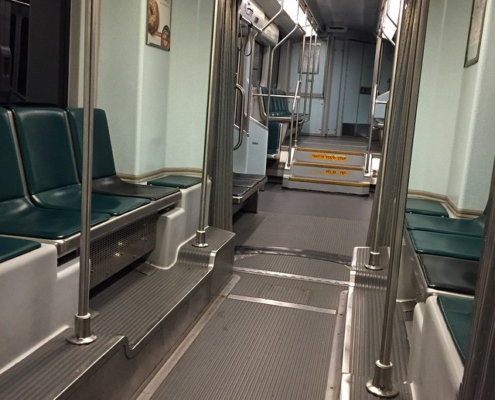
Letter to MassDOT Secretary Richard Davey requesting information regarding the safety of the ramps near the Zakim Bridge
Letter to MassDOT Secretary Richard Davey requesting information regarding the safety of the ramps near the Zakim Bridge
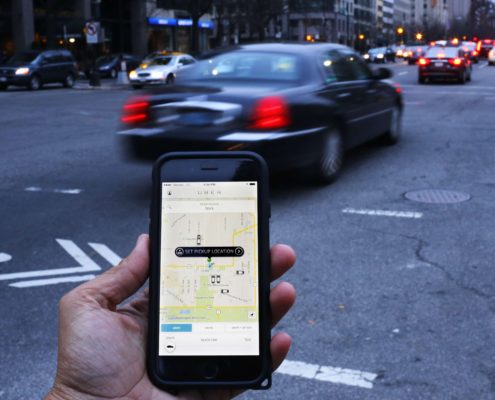
Massachusetts’ Technology Tax an Unnecessary Detour
Governor Patrick now concedes it was a bad idea and it appears that the so-called tech tax will be repealed. Repeal will leave a $160 million hole in state transportation funding. But that hole need not be filled exclusively by new revenue. It can be filled by savings, revenue, or a combination of the two, and Pioneer Institute research shows there are plenty of savings to be had from a series of reforms.

The MBTA’s Out-of-Control Bus Maintenance Costs
This policy paper compares the MBTA's bus maintenance costs to those of other bus transit agencies and considers the causes of the T's inordinately high bus maintenance spending. Considering that the MBTA spent a whopping $832 million on bus maintenance between 2000 and 2011, any significant improvement in cost-effectiveness in this area is certain to translate into large savings.

Runaway Transportation Costs
Recent news demonstrates that the state’s transportation system has problems that go beyond a shortage of funding. The Boston Herald has reported that the MBTA doesn’t make public information available about how much they are paying out in pension benefits and who is receiving benefits.
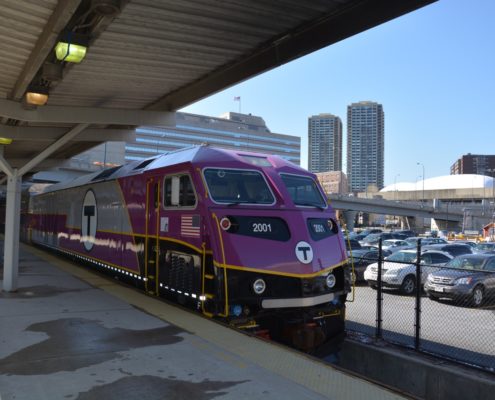
Driving Reform: Real Solutions to Our Transportation Challenges
Reform is hard work. A massive injection of new money into Massachusetts’ troubled transportation system is no substitute for a serious plan that delineates clear and achievable goals, accountability for results, and provides the money to move forward.

Introduction to the Massachusetts Transportation Dashboard
Pioneer's Transportation Dashboard is intended to communicate the performance of the state's transportation system and inform the public about the effectiveness of the state's transportation leadership. As a single-page of primarily visual communication, it necessarily simplifies the complex nature of the transportation system.

Getting There: Transportation Reform in 2009
Transportation policy will play a prominent role in Massachusetts politics over the coming months. The Massachusett Bay Transportation Authority's (MBTA) structural deficit is projected to grow to $160 million in FY2010. The MassPike is facing an operating deficit and the potential implosion of its financing structure. MassHighway is scrambling to initiate a $3 billion accelerated bridge repair program that will leave us with hundreds of structurally deficient bridges even after it is done.

Lessons Learned: An Assessment of Select Public-Private Partnerships in Massachusetts
Public-private partnerships are a much misunderstood and still-evolving innovation in transportation infrastructure. Viewed with great suspicion by some as a ‘selling off’ of public goods, it is viewed with great enthusiasm by others as a source of additional revenues. In Massachusetts, we see public-private partnerships through the lens of recent projects that used private sector participation. This study seeks to examine several of those recent projects to learn about the private sector’s role and its impact on the project.
